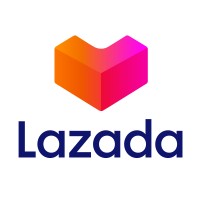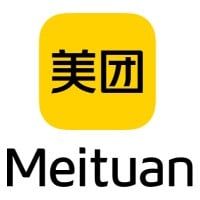Company Details
didiglobal
30,646
329,212
5112
didiglobal.com
0
DID_1472078
In-progress


DiDi Company CyberSecurity Posture
didiglobal.comDiDi Global Inc. is a leading mobility technology platform. It offers a wide range of app-based services across Asia Pacific, Latin America, and other global markets, including ride hailing, taxi hailing, designated driving, hitch and other forms of shared mobility as well as certain energy and vehicle services, food delivery, and intra-city freight services. DiDi provides car owners, drivers, and delivery partners with flexible work and income opportunities. It is committed to collaborating with policymakers, the taxi industry, the automobile industry, and the communities to solve the world’s transportation, environmental, and employment challenges through the use of AI technology and localized smart transportation innovations. DiDi strives to create better life experiences and greater social value, by building a safe, inclusive, and sustainable transportation and local services ecosystem for cities of the future.
Company Details
didiglobal
30,646
329,212
5112
didiglobal.com
0
DID_1472078
In-progress
Between 750 and 799

 DiDi Global Score (TPRM)
DiDi Global Score (TPRM)XXXX

Description: DiDi Global faced a $740 million settlement in a class-action lawsuit for allegedly defrauding investors by concealing a Chinese government order to delay its June 2021 IPO until cybersecurity and privacy concerns were resolved. The company proceeded with the IPO, raising $4.4 billion, but shortly after, China’s Cyberspace Administration banned new customer registrations and removed the DiDi Travel app from app stores. The regulator later imposed a $1.2 billion fine (July 2022) for data security violations. The incident triggered a sharp decline in DiDi’s stock value, eroding investor trust and leading to significant financial losses, including a second-quarter loss tied to the settlement provision. The case highlights regulatory non-compliance in cybersecurity, resulting in reputational damage, financial penalties, and legal repercussions, undermining the company’s market position and operational stability.


No incidents recorded for DiDi in 2026.
No incidents recorded for DiDi in 2026.
No incidents recorded for DiDi in 2026.
DiDi cyber incidents detection timeline including parent company and subsidiaries

DiDi Global Inc. is a leading mobility technology platform. It offers a wide range of app-based services across Asia Pacific, Latin America, and other global markets, including ride hailing, taxi hailing, designated driving, hitch and other forms of shared mobility as well as certain energy and vehicle services, food delivery, and intra-city freight services. DiDi provides car owners, drivers, and delivery partners with flexible work and income opportunities. It is committed to collaborating with policymakers, the taxi industry, the automobile industry, and the communities to solve the world’s transportation, environmental, and employment challenges through the use of AI technology and localized smart transportation innovations. DiDi strives to create better life experiences and greater social value, by building a safe, inclusive, and sustainable transportation and local services ecosystem for cities of the future.


We're a global online visual communications platform on a mission to empower the world to design. Featuring a simple drag-and-drop user interface and a vast range of templates ranging from presentations, documents, websites, social media graphics, posters, apparel to videos, plus a huge library of f

About Lazada Group Founded in 2012, Lazada Group is the leading eCommerce platform in Southeast Asia. We are accelerating progress in Indonesia, Malaysia, the Philippines, Singapore, Thailand and Vietnam through commerce and technology. With the largest logistics and payments networks in the regio
A problem isn't truly solved until it's solved for all. Googlers build products that help create opportunities for everyone, whether down the street or across the globe. Bring your insight, imagination and a healthy disregard for the impossible. Bring everything that makes you unique. Together, we c

More than one billion people around the world use Instagram, and we’re proud to be bringing them closer to the people and things they love. Instagram inspires people to see the world differently, discover new interests, and express themselves. Since launching in 2010, our community has grown at a r
SAP is the leading enterprise application and business AI company. We stand at the intersection of business and technology, where our innovations are designed to directly address real business challenges and produce real-world impacts. Our solutions are the backbone for the world’s most complex and
Who are we? Amdocs helps those who build the future to make it amazing. With our market-leading portfolio of software products and services, we unlock our customers’ innovative potential, empowering them to provide next-generation communication and media experiences for both the individual end user

Adhering to the ‘Retail + Technology’ strategy, Meituan commits to its mission that 'We help people eat better, live better'. Since its establishment in March 2010, Meituan has advanced the digital upgrading of services and goods retail on both supply and demand sides. Together with our partners we
Rakuten Group, Inc. (TSE: 4755) is a global technology leader in services that empower individuals, communities, businesses and society. Founded in Tokyo in 1997 as an online marketplace, Rakuten has expanded to offer services in e-commerce, fintech, digital content and communications to 2 billion m

ByteDance is a global incubator of platforms at the cutting edge of commerce, content, entertainment and enterprise services - over 2.5bn people interact with ByteDance products including TikTok. Creation is the core of ByteDance's purpose. Our products are built to help imaginations thrive. This i
.png)
(Yicai) Nov. 29 -- Didi Chuxing Technology said the glitch this week that interfered with the Chinese ride-hailing giant's app was down to a...
Revenue declined 19 per cent to 140.8 billion yuan in 2022 from 173.8 billion yuan in the previous year, as users in China took fewer rides...
Almost all China's tech giants have now felt the crack of Beijing's regulatory whip. Vincent Brussee says a new phase is beginning for big tech – it has to...
The Cyber Security Review Office gave Didi the green light to resume new user registrations several months after concluding its...
Move comes a year and a half after ride-hailing giant was targeted in a cybersecurity probe by Chinese authorities.
As investors, politicians, analysts, and businesses around the world watch China's crackdown on ride-hailing app Didi, one thing to pay attention to is what...
Didi Chuxing (Didi) was fined RMB 8.026 billion (approx. USD 1.2 billion) on 21 July 2022, more than a year after the Cyberspace Administration of China (CAC)...
Which regulations did Didi break? According to the CAC's announcement released on July 21, 2022 the investigation found that Didi had violated...
The statement revealed more details regarding CAC's basis for its penalty decision. It stated that Didi committed 16 offenses, which appeared to...

Explore insights on cybersecurity incidents, risk posture, and Rankiteo's assessments.
The official website of DiDi is http://www.didiglobal.com.
According to Rankiteo, DiDi’s AI-generated cybersecurity score is 758, reflecting their Fair security posture.
According to Rankiteo, DiDi currently holds 0 security badges, indicating that no recognized compliance certifications are currently verified for the organization.
According to Rankiteo, DiDi has not been affected by any supply chain cyber incidents, and no incident IDs are currently listed for the organization.
According to Rankiteo, DiDi is not certified under SOC 2 Type 1.
According to Rankiteo, DiDi does not hold a SOC 2 Type 2 certification.
According to Rankiteo, DiDi is not listed as GDPR compliant.
According to Rankiteo, DiDi does not currently maintain PCI DSS compliance.
According to Rankiteo, DiDi is not compliant with HIPAA regulations.
According to Rankiteo,DiDi is not certified under ISO 27001, indicating the absence of a formally recognized information security management framework.
DiDi operates primarily in the Software Development industry.
DiDi employs approximately 30,646 people worldwide.
DiDi presently has no subsidiaries across any sectors.
DiDi’s official LinkedIn profile has approximately 329,212 followers.
DiDi is classified under the NAICS code 5112, which corresponds to Software Publishers.
No, DiDi does not have a profile on Crunchbase.
Yes, DiDi maintains an official LinkedIn profile, which is actively utilized for branding and talent engagement, which can be accessed here: https://www.linkedin.com/company/didiglobal.
As of January 21, 2026, Rankiteo reports that DiDi has experienced 1 cybersecurity incidents.
DiDi has an estimated 28,125 peer or competitor companies worldwide.
Incident Types: The types of cybersecurity incidents that have occurred include Breach.
Total Financial Loss: The total financial loss from these incidents is estimated to be $740 billion.
Detection and Response: The company detects and responds to cybersecurity incidents through an remediation measures with negotiation of $740 million settlement, remediation measures with compliance with cac orders, and communication strategy with public disclosure of settlement, communication strategy with legal filings in u.s. district court..
Title: DiDi Global's $740 Million Settlement Over Concealed Cybersecurity and Privacy Concerns in 2021 IPO
Description: DiDi Global agreed to a $740 million settlement in a class-action lawsuit accusing the company of defrauding investors by concealing a Chinese government order to delay its June 2021 IPO until cybersecurity and privacy concerns were resolved. The company faced regulatory penalties, including a $1.2 billion fine from China’s Cyberspace Administration, a ban on new customer registrations, and the removal of its app from stores. The settlement, pending judicial approval, follows DiDi’s disclosure of setting aside funds for the accord, resulting in a second-quarter loss.
Date Publicly Disclosed: 2021-07
Type: Regulatory Non-Compliance
Threat Actor: Chinese Government (Cyberspace Administration of China - CAC)
Motivation: Regulatory EnforcementData Privacy ComplianceInvestor Protection
Common Attack Types: The most common types of attacks the company has faced is Breach.

Financial Loss: $740 million (settlement) + $1.2 billion (regulatory fine)
Operational Impact: Ban on new customer registrationsApp removal from smartphone storesSecond-quarter financial loss
Brand Reputation Impact: Significant (share price tumble, regulatory scrutiny, investor distrust)
Legal Liabilities: $740 million settlement + $1.2 billion fine
Average Financial Loss: The average financial loss per incident is $740.00 billion.

Entity Name: DiDi Global Inc.
Entity Type: Public Company (Ride-Hailing/Transportation)
Industry: Technology/Transportation
Location: China (Headquarters in Beijing)
Size: Large (Valued at ~$67.5 billion during IPO)

Remediation Measures: Negotiation of $740 million settlementCompliance with CAC orders
Communication Strategy: Public disclosure of settlementLegal filings in U.S. District Court
Prevention of Data Exfiltration: The company takes the following measures to prevent data exfiltration: Negotiation of $740 million settlement, Compliance with CAC orders, .

Regulations Violated: Chinese Cybersecurity Laws, Privacy Regulations, U.S. Securities Laws (alleged investor fraud),
Fines Imposed: $1.2 billion (CAC) + $740 million (settlement)
Legal Actions: Class-action lawsuit (In re DiDi Global Inc Securities Litigation), CAC regulatory penalties,
Regulatory Notifications: CAC ban on new registrationsApp removal from stores
Ensuring Regulatory Compliance: The company ensures compliance with regulatory requirements through Class-action lawsuit (In re DiDi Global Inc Securities Litigation), CAC regulatory penalties, .

Source: Reuters
Additional Resources: Stakeholders can find additional resources on cybersecurity best practices at and Source: Reuters.

Investigation Status: Settlement pending judicial approval (as of mid-October 2023)
Communication of Investigation Status: The company communicates the status of incident investigations to stakeholders through Public Disclosure Of Settlement and Legal Filings In U.S. District Court.

Root Causes: Failure To Disclose Regulatory Orders To Investors, Non-Compliance With Chinese Cybersecurity/Privacy Laws,
Corrective Actions: Settlement Agreement, Compliance Overhaul (Implied),
Corrective Actions Taken: The company has taken the following corrective actions based on post-incident analysis: Settlement Agreement, Compliance Overhaul (Implied), .
Last Attacking Group: The attacking group in the last incident was an Chinese Government (Cyberspace Administration of China - CAC).
Most Recent Incident Publicly Disclosed: The most recent incident publicly disclosed was on 2021-07.
Highest Financial Loss: The highest financial loss from an incident was $740 million (settlement) + $1.2 billion (regulatory fine).
Highest Fine Imposed: The highest fine imposed for a regulatory violation was $1.2 billion (CAC) + $740 million (settlement).
Most Significant Legal Action: The most significant legal action taken for a regulatory violation was Class-action lawsuit (In re DiDi Global Inc Securities Litigation), CAC regulatory penalties, .
Most Recent Source: The most recent source of information about an incident is Reuters.
Current Status of Most Recent Investigation: The current status of the most recent investigation is Settlement pending judicial approval (as of mid-October 2023).
.png)
SummaryA command injection vulnerability (CWE-78) has been found to exist in the `wrangler pages deploy` command. The issue occurs because the `--commit-hash` parameter is passed directly to a shell command without proper validation or sanitization, allowing an attacker with control of `--commit-hash` to execute arbitrary commands on the system running Wrangler. Root causeThe commitHash variable, derived from user input via the --commit-hash CLI argument, is interpolated directly into a shell command using template literals (e.g., execSync(`git show -s --format=%B ${commitHash}`)). Shell metacharacters are interpreted by the shell, enabling command execution. ImpactThis vulnerability is generally hard to exploit, as it requires --commit-hash to be attacker controlled. The vulnerability primarily affects CI/CD environments where `wrangler pages deploy` is used in automated pipelines and the --commit-hash parameter is populated from external, potentially untrusted sources. An attacker could exploit this to: * Run any shell command. * Exfiltrate environment variables. * Compromise the CI runner to install backdoors or modify build artifacts. Credits Disclosed responsibly by kny4hacker. Mitigation * Wrangler v4 users are requested to upgrade to Wrangler v4.59.1 or higher. * Wrangler v3 users are requested to upgrade to Wrangler v3.114.17 or higher. * Users on Wrangler v2 (EOL) should upgrade to a supported major version.
Vulnerability in the Oracle VM VirtualBox product of Oracle Virtualization (component: Core). Supported versions that are affected are 7.1.14 and 7.2.4. Easily exploitable vulnerability allows high privileged attacker with logon to the infrastructure where Oracle VM VirtualBox executes to compromise Oracle VM VirtualBox. While the vulnerability is in Oracle VM VirtualBox, attacks may significantly impact additional products (scope change). Successful attacks of this vulnerability can result in takeover of Oracle VM VirtualBox. CVSS 3.1 Base Score 8.2 (Confidentiality, Integrity and Availability impacts). CVSS Vector: (CVSS:3.1/AV:L/AC:L/PR:H/UI:N/S:C/C:H/I:H/A:H).
Vulnerability in the Oracle VM VirtualBox product of Oracle Virtualization (component: Core). Supported versions that are affected are 7.1.14 and 7.2.4. Easily exploitable vulnerability allows high privileged attacker with logon to the infrastructure where Oracle VM VirtualBox executes to compromise Oracle VM VirtualBox. While the vulnerability is in Oracle VM VirtualBox, attacks may significantly impact additional products (scope change). Successful attacks of this vulnerability can result in unauthorized creation, deletion or modification access to critical data or all Oracle VM VirtualBox accessible data as well as unauthorized access to critical data or complete access to all Oracle VM VirtualBox accessible data and unauthorized ability to cause a partial denial of service (partial DOS) of Oracle VM VirtualBox. CVSS 3.1 Base Score 8.1 (Confidentiality, Integrity and Availability impacts). CVSS Vector: (CVSS:3.1/AV:L/AC:L/PR:H/UI:N/S:C/C:H/I:H/A:L).
Vulnerability in the Oracle VM VirtualBox product of Oracle Virtualization (component: Core). Supported versions that are affected are 7.1.14 and 7.2.4. Easily exploitable vulnerability allows high privileged attacker with logon to the infrastructure where Oracle VM VirtualBox executes to compromise Oracle VM VirtualBox. While the vulnerability is in Oracle VM VirtualBox, attacks may significantly impact additional products (scope change). Successful attacks of this vulnerability can result in takeover of Oracle VM VirtualBox. CVSS 3.1 Base Score 8.2 (Confidentiality, Integrity and Availability impacts). CVSS Vector: (CVSS:3.1/AV:L/AC:L/PR:H/UI:N/S:C/C:H/I:H/A:H).
Vulnerability in the Oracle VM VirtualBox product of Oracle Virtualization (component: Core). Supported versions that are affected are 7.1.14 and 7.2.4. Easily exploitable vulnerability allows high privileged attacker with logon to the infrastructure where Oracle VM VirtualBox executes to compromise Oracle VM VirtualBox. While the vulnerability is in Oracle VM VirtualBox, attacks may significantly impact additional products (scope change). Successful attacks of this vulnerability can result in takeover of Oracle VM VirtualBox. CVSS 3.1 Base Score 8.2 (Confidentiality, Integrity and Availability impacts). CVSS Vector: (CVSS:3.1/AV:L/AC:L/PR:H/UI:N/S:C/C:H/I:H/A:H).

Get company history
















Every week, Rankiteo analyzes billions of signals to give organizations a sharper, faster view of emerging risks. With deeper, more actionable intelligence at their fingertips, security teams can outpace threat actors, respond instantly to Zero-Day attacks, and dramatically shrink their risk exposure window.
Identify exposed access points, detect misconfigured SSL certificates, and uncover vulnerabilities across the network infrastructure.
Gain visibility into the software components used within an organization to detect vulnerabilities, manage risk, and ensure supply chain security.
Monitor and manage all IT assets and their configurations to ensure accurate, real-time visibility across the company's technology environment.
Leverage real-time insights on active threats, malware campaigns, and emerging vulnerabilities to proactively defend against evolving cyberattacks.




